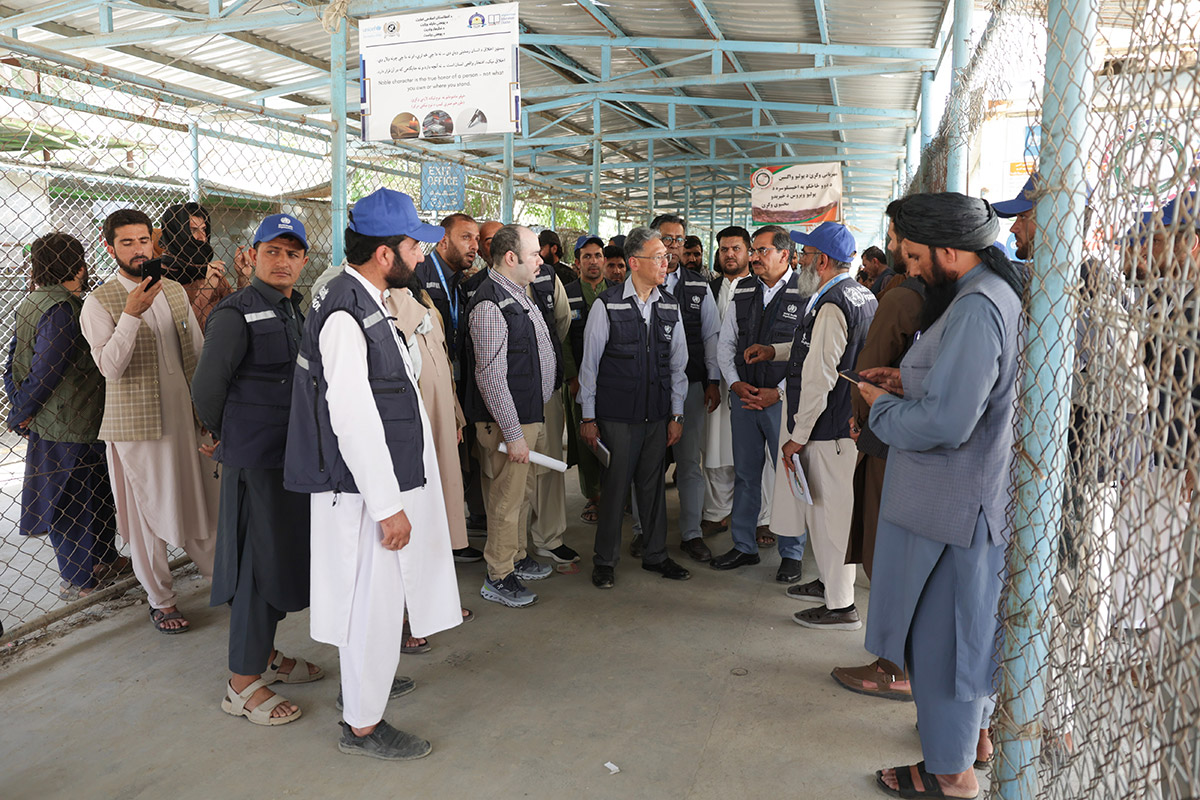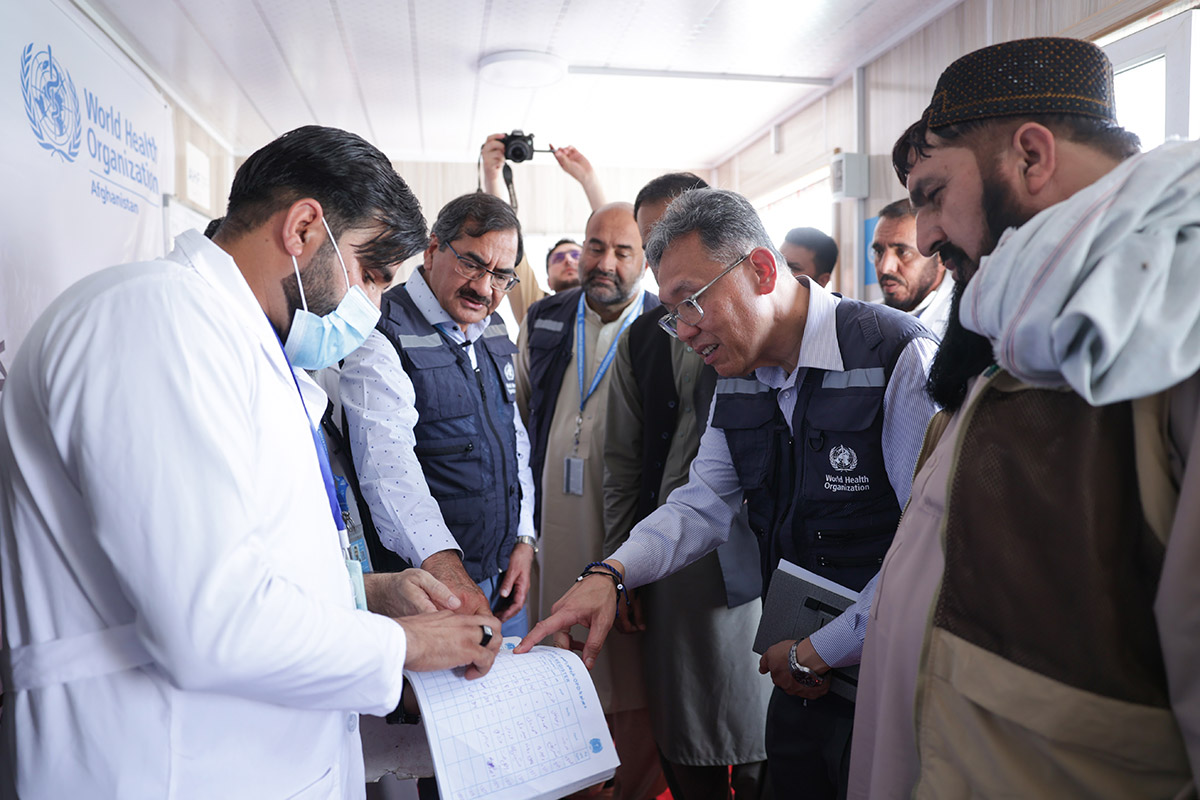19 May 2025, Kabul, Afghanistan – The continued influx of returnees from neighbouring countries is exacerbating existing public health issues in Afghanistan at a time when the country faces a complex array of challenges, including widespread population displacement, drought, food insecurity, multiple disease outbreaks and the lingering impacts of the COVID-19 pandemic.
Over 100 000 Afghans were forced to return from Pakistan in April, most of them women and children. Returnees’ urgent needs include water, food, medical support and protection coverage. Returnees experience a wide range of health and psychological problems, including acute respiratory infections, acute watery diarrhoea, malnutrition, skin diseases, trauma and mental health problems.
 WHO Representative Dr Edwin Ceniza Salvador and WHE Team Lead Dr Jamshed Tanoli visit Omari Camp at the Torkham border to assess health response efforts for returnees. Photo credit: WHO Afghanistan
WHO Representative Dr Edwin Ceniza Salvador and WHE Team Lead Dr Jamshed Tanoli visit Omari Camp at the Torkham border to assess health response efforts for returnees. Photo credit: WHO Afghanistan
WHO and its partners are providing vital health care services to returnees at the Torkham crossing. The Organization is supporting the Torkham Trauma Centre and 20-bed Hospital. It has deployed 3 mobile health teams to provide 24-hour health care services and 2 surveillance support teams in Torkham. In addition, 2 Public Health Team screening teams and 72 vaccinators, including 14 females, have been assigned to Zero Point, the line where Pakistan becomes Afghanistan, and 10 female vaccinators to the Torkham returnee camp to provide OPV/IPV vaccines.
“The 20-bed hospital in Torkham, supported by WHO, is an advanced health care facility with a fully equipped operation room providing trauma, emergency and maternal care for returnees,” said Dr Hijratullah Mohmand, Director of the WHO-supported Torkham Trauma Centre and 20-bed Hospital.
 At Zero Point, Torkham border—WHO Representative Dr. Edwin Salvador and WHE Team Lead Dr. Jamshed Tanoli assess ongoing health response efforts for returnees. Photo credit: WHO Afghanistan
At Zero Point, Torkham border—WHO Representative Dr. Edwin Salvador and WHE Team Lead Dr. Jamshed Tanoli assess ongoing health response efforts for returnees. Photo credit: WHO Afghanistan
During April, 5617 patients received health care services in the hospital, with almost 5500 receiving free medications. More than 4300 also received health education at the facility.
"My pregnant wife started feeling severe pain as we crossed Torkham so we took her to the emergency hospital. She received urgent care from specialist doctors and her condition stabilized," said Ahmed Zia, a returnee from Pakistan.
“If it weren't for the hospital's services, we would have lost my wife and her baby. I had nowhere else to go at the time, but the hospital saved my family. I am so grateful to the hospital and its staff.”
Without timely support and the provision of lifesaving health care services returnees will face increasing risks, including disease outbreaks and a lack of access to essential emergency care and mental health support.
“With the available resources at hand, WHO is prioritizing provision of needed health care services for returnees at points of entry as well as in areas of return to reduce the risks of a greater health crisis and protect the health of the community, especially women and children,” said WHO Afghanistan Health Emergencies Programme Team Lead Dr Jamshed Tanoli.
“Additional funding is desperately needed to maintain essential health services and medical supplies, including trauma and reproductive health kits, and to strengthen disease surveillance and outbreak response capacity at key border points and in areas of return.”



